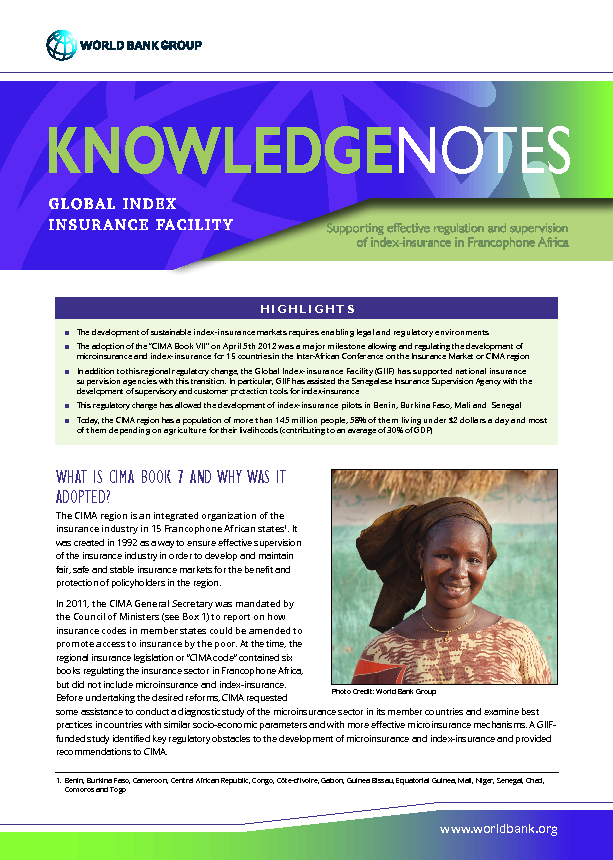
Tue, 02/14/2017
Topics:
WASHINGTON, February 14, 2017 - The World Bank Group’s Global Index Insurance Facility (GIIF) and African Reinsurance Corporation (Africa Re) have entered into an agreement to carry out a risk-sharing facility, in form of an experience account, to decrease premium levels for insured farmers and encourage local companies to create affordable insurance products. “Agriculture provides up to 60 percent of all jobs on the continent, but African farmers need greater access to insurance mechanisms to develop resilience to external shocks and protect their livelihoods,” said Makhtar Diop, World Bank...




